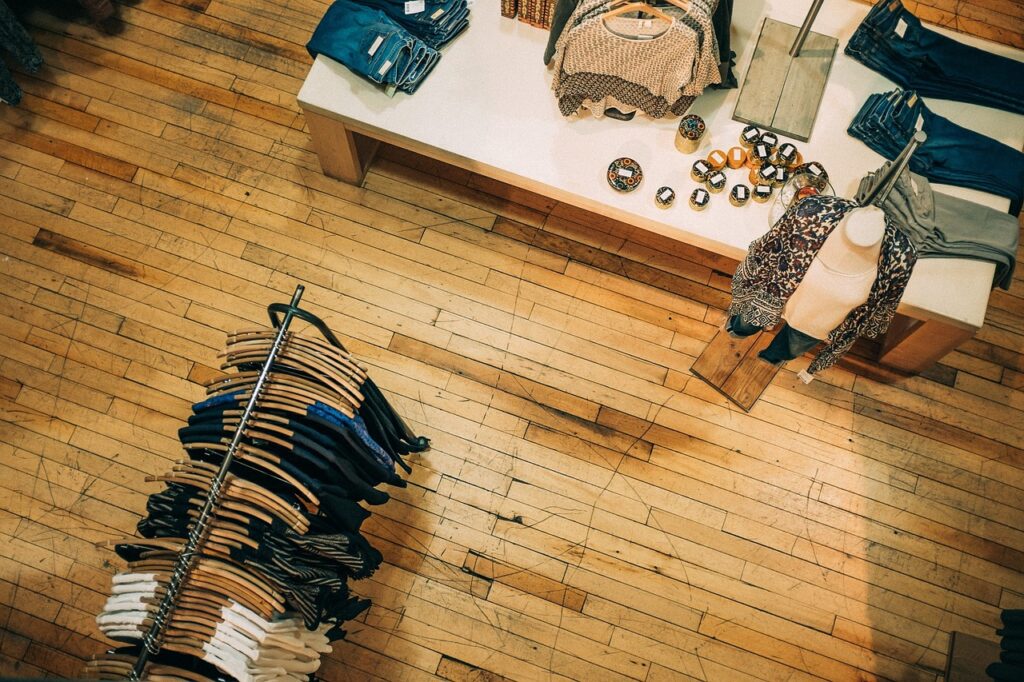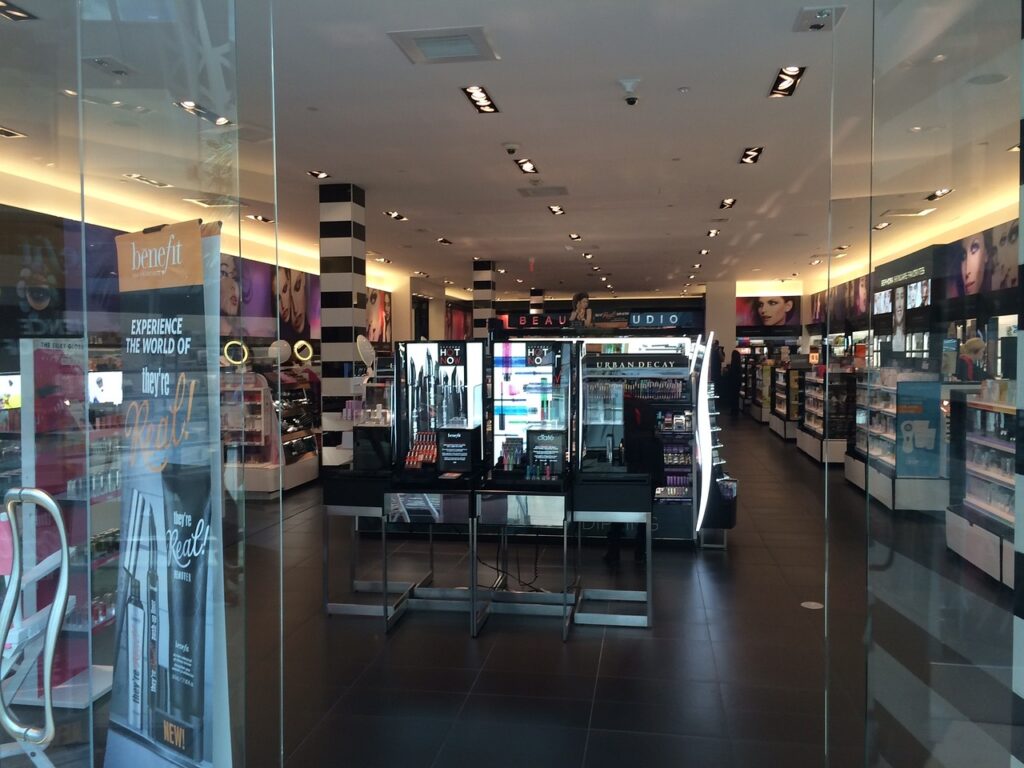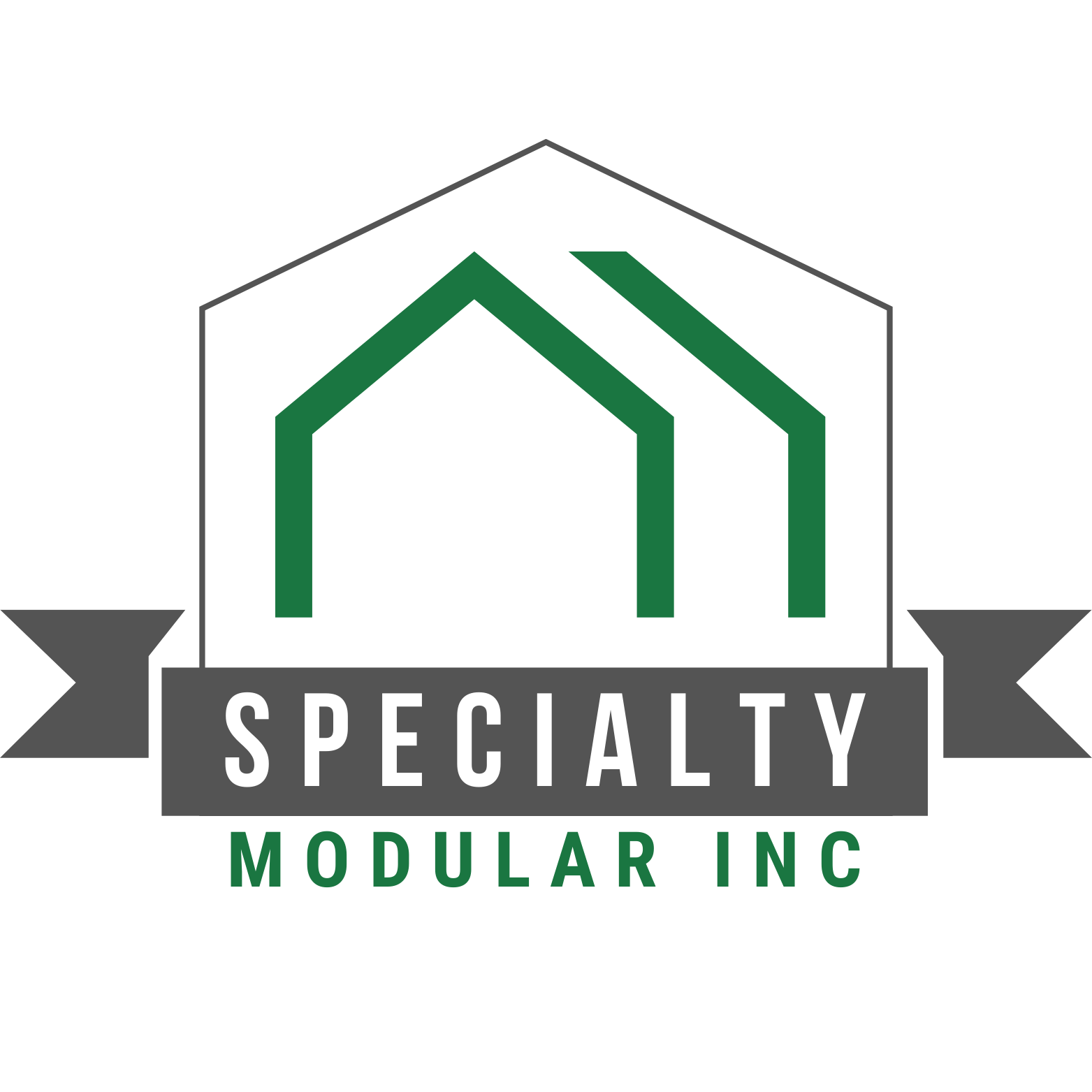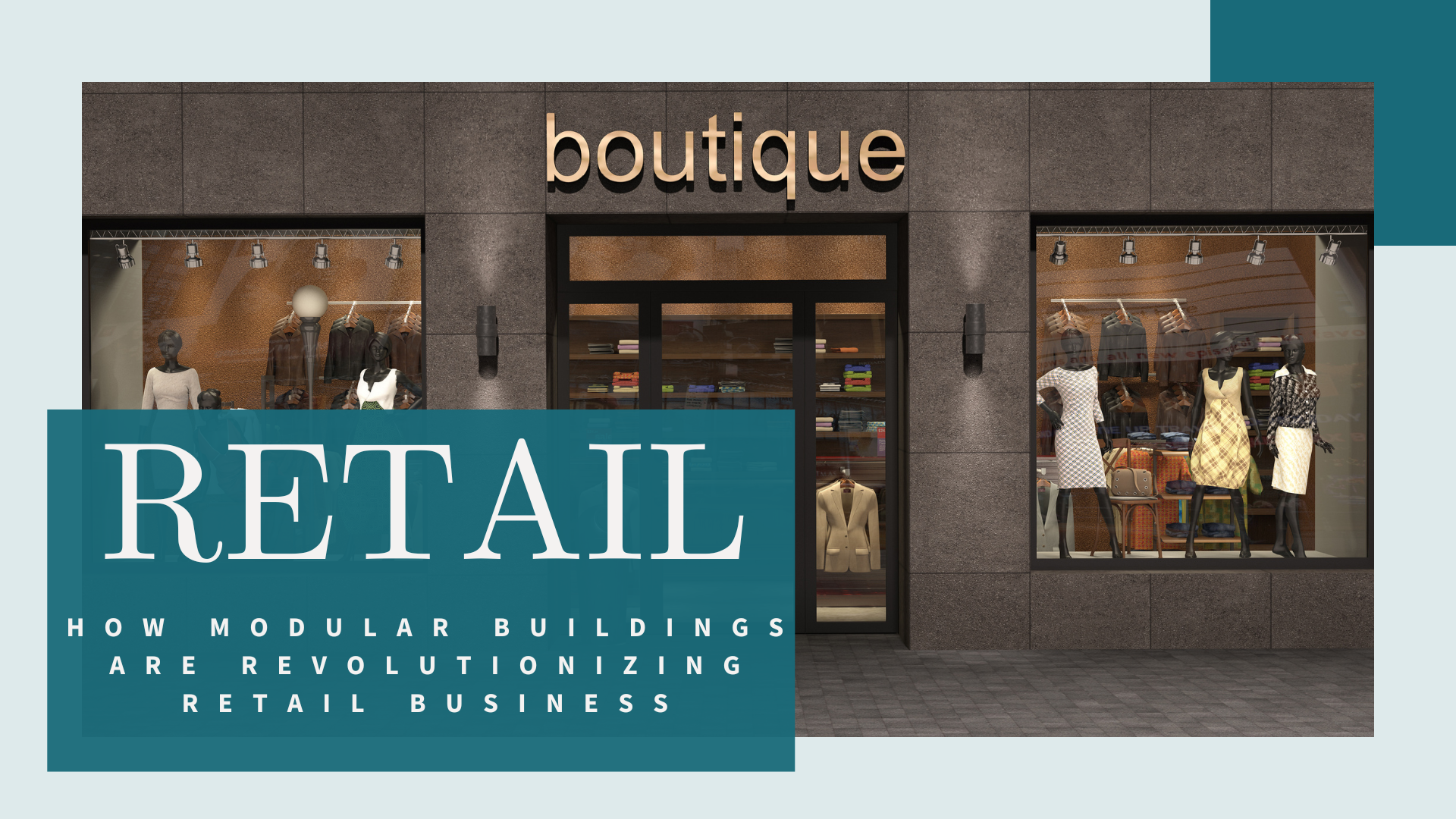In recent years, modular construction has moved from a niche concept to a mainstream solution in the construction and real estate industries. While it’s been gaining traction in residential and commercial applications, one area where modular buildings are truly making an impact is in the retail sector. Retail businesses are increasingly turning to modular solutions to meet the demands of modern consumers, streamline operations, and capitalize on the benefits of fast, cost-effective construction.
Modular buildings—prefabricated structures made in sections off-site—are reshaping how retailers approach everything from brick-and-mortar store design to temporary pop-up locations. But what exactly makes modular buildings so appealing to the retail industry? In this article, we’ll explore how modular construction is transforming the retail landscape and why more businesses are embracing this innovative approach.

What Are Modular Retail Buildings?
Before diving into the specifics of how modular buildings are changing retail, let’s first define what modular construction is. In short, modular buildings are structures made up of pre-fabricated modules or units that are built off-site in a controlled factory environment. These modules are then transported to the construction site, where they are assembled into a complete building.
Unlike traditional retail buildings that are constructed entirely on-site, modular retail buildings are created in parallel with site preparation, which drastically shortens construction timelines. These buildings can be fully customized in terms of design, size, and functionality, while still benefiting from the speed and cost savings of modular construction.
Modular buildings aren’t new—they’ve been used in sectors like education (modular classrooms), healthcare (modular clinics), and even hospitality (modular hotels). However, their use in the retail sector has recently surged due to their unique ability to meet the fast-paced demands of modern retail businesses.

Key Advantages of Modular Construction for Retail Businesses
Retail businesses face numerous challenges in today’s competitive market: the pressure to deliver new stores quickly, manage costs efficiently, and offer customers an engaging in-store experience. Modular buildings can help address many of these challenges, offering several key advantages for retail businesses.
Speed of Construction
One of the most significant benefits of modular construction is its speed. Traditional retail construction projects often take months or even years to complete due to weather delays, labor shortages, and other logistical challenges. In contrast, modular buildings are designed, manufactured, and assembled much more quickly.
Because modules are built off-site while site work (like foundations and utility connections) is happening simultaneously, the construction timeline is dramatically shortened. For retailers, this means they can open new locations in record time, accelerating their time-to-market. For example, a retail chain looking to expand into a new region can use modular buildings to rapidly establish a presence, capturing market share before competitors have a chance to catch up.
Cost Efficiency
The cost savings associated with modular construction are another compelling reason why retail businesses are turning to modular solutions. Building materials are purchased in bulk, reducing the overall cost of supplies, and factory-based construction minimizes labor costs. Additionally, the faster timeline means fewer delays, leading to fewer cost overruns due to unforeseen issues.
Moreover, modular construction is particularly beneficial for retailers with multiple locations. Instead of spending significant amounts on each new store build, retailers can create a standardized modular design that can be easily replicated across multiple locations. This scalability and repeatability drive down costs even further, making modular buildings a smart investment for large retail chains.
Scalability and Flexibility
Another major advantage of modular buildings for retail businesses is their scalability. As the retail landscape evolves, businesses often need to be flexible to respond to changing demands. Modular buildings offer just that.
For example, modular units can be added or removed as needed, allowing retail businesses to quickly adjust the size of their locations. This makes modular buildings ideal for pop-up shops, seasonal stores, or testing new retail concepts. A retailer experimenting with a new market or product line can test the waters with a modular space that can be easily expanded or downsized depending on its success.
Additionally, modular construction can support mixed-use spaces that incorporate retail, office, and even residential components. This flexibility makes modular buildings a powerful tool for businesses that want to keep pace with the increasingly diverse ways in which people shop, work, and live.
Sustainability
Sustainability is a growing concern for many consumers, and retail businesses are increasingly expected to lead the way when it comes to eco-friendly practices. Modular buildings are often more sustainable than traditional construction methods, and this is another reason why retailers are turning to them.
Because modular buildings are prefabricated in a controlled factory environment, they generate less waste than traditional on-site construction. The modular manufacturing process is highly efficient, reducing material wastage and minimizing environmental impact. Additionally, modular buildings can be designed with energy-efficient features such as solar panels, LED lighting, and superior insulation, which further reduce a building’s environmental footprint.
Consumers are increasingly drawn to brands that align with their values, and many are willing to support retailers that prioritize sustainability. By using modular buildings, retailers can boost their green credentials and appeal to eco-conscious customers.

Real-World Examples of Modular Retail Spaces
To better understand how modular construction is revolutionizing retail, let’s look at some real-world examples where modular buildings have been successfully integrated into retail businesses.
Case Study 1: The Etsy Retail Jump
One example of modular buildings in the retail space is the leap from the digital marketplace to the brick and mortar space. There are many online shops that have taken the massive step from living exclusively online and trying out their businesses with modular retail stores. You can find several digital creators and entrepreneurs opening up small, experimental stores and making a run at their physical business all across America. Even if they use it as a storage space for shipping orders, adding a retail space for the public has never been easier for many of these new businesses taking the jump from Etsy to the real world.
Case Study 2: Pop-Up Retail Shops
Modular buildings are also ideal for temporary retail locations, such as pop-up shops. Retailers can use modular units to create temporary spaces for special events, seasonal promotions, or product launches. These modular pop-up shops are easy to install, customize, and dismantle when no longer needed, offering flexibility for brands that want to test new products or enter new markets without committing to a permanent store.
For example, outdoor retailers like REI and Patagonia have used modular pop-up shops for events like product launches or holiday sales. These modular spaces can be moved to different locations to reach customers at various events or festivals, creating a mobile retail experience that would be difficult with traditional brick-and-mortar stores.
Case Study 3: Retail Flagship Stores
Some major retail brands are taking advantage of modular buildings to create innovative flagship stores. These modular spaces allow brands to experiment with unique layouts and customer experiences while maintaining the flexibility to expand or change the space as needed. For example, the Swedish furniture giant IKEA has experimented with modular buildings to house its smaller-format stores in urban areas where traditional large-format stores may not be feasible.

Challenges and Considerations for Retail Owners
While modular buildings offer numerous benefits, there are also some challenges that retailers should consider before deciding to go modular.
Zoning and Permitting
One of the primary challenges of using modular construction for retail is navigating local zoning laws and obtaining permits. Since modular buildings are prefabricated off-site and assembled on location, the permitting process can be more complex than traditional construction methods. Retailers must ensure that their modular designs meet local building codes and zoning regulations, which can vary from one municipality to another.
Some areas may have restrictions on the use of modular buildings, particularly if they’re intended for permanent use. Retailers must also factor in time for permit approval, which can sometimes delay construction. That said, as modular construction becomes more widely accepted, many jurisdictions are adapting their laws to accommodate this innovative building method.
Perceived Design and Aesthetic Limitations
While modular buildings offer significant flexibility in terms of size and layout, there may be some limitations when it comes to aesthetics. Retailers may worry that modular designs lack the architectural appeal and branding opportunities that come with traditional construction.
However, advances in modular design have significantly improved the aesthetic possibilities for these buildings. Many modular units can be customized with unique facades, signage, and interior layouts that reflect the brand’s identity. Additionally, modular buildings can be used in combination with traditional construction to create hybrid spaces that blend the best of both worlds.
Long-Term Durability
Another concern some retailers have is the long-term durability of modular buildings. Since these structures are assembled in factories and transported to their final location, there may be concerns about how well they hold up over time compared to traditional construction.
However, modern modular buildings are built to last. Manufacturers use high-quality materials and advanced construction techniques to ensure that modular units are just as durable as their traditionally built counterparts. Furthermore, modular buildings can be easily maintained or renovated over time, making them a long-term solution for retailers who want flexibility without sacrificing quality.

The Future of Modular Retail Buildings
As the retail landscape continues to evolve, modular buildings are poised to play an even greater role in shaping the industry. With advancements in construction technology, sustainability initiatives, and growing demand for flexibility, the future of modular retail is bright.
Technological Advancements
The integration of cutting-edge technologies such as 3D printing, robotics, and automation is making modular construction even faster and more efficient. Retailers can expect to see more advanced designs, quicker build times, and even more customization options in the near future.
Trends Toward Sustainability
With sustainability at the forefront of consumer preferences, retailers that embrace modular buildings will be able to demonstrate their commitment to green building practices. As consumer demand for eco-friendly retail grows, modular
Let’s Talk About Your Future!
If you own a retail business or are starting to look at beginning your retail career, we’d love to chat with you about what modular construction can do for you and your business. We understand that you may have general questions or may just be starting to investigate your options. At Specialty Modular, we will gladly chat with you about where you are and what’s possible for a custom retail space. If you’ve got questions, we’ve got answers.
However, if you’re looking for numbers and would like a quote, our team is happy to chat with you about the specifics of what you need and grab some data for you. We pride ourselves in low pressure conversations about seeing where you are and what we can do to help. So if you’re ready, we’re waiting. Contact us today and let’s see what we can do to help you!


No responses yet